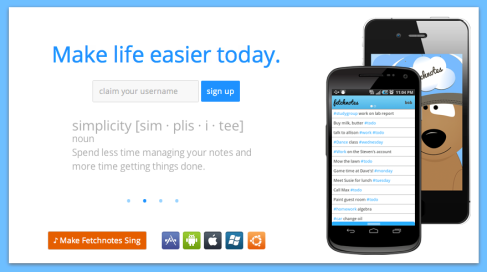Tag Archives: truApp
Q&A with truApp Evangelist Carolyn Boddy
I recently published a short write-up on truApp, a start-up in Ann Arbor, Michigan that gives students the opportunity to tell their story in their own words to a network of potential employers. Carolyn was gracious enough to answer some questions for me about truApp.
truApp Makes Career Networking More Social
And student friendly. In fact, says truApp evangelist Carolyn Boddy, “Facebook is purely social, and LinkedIn is purely professional. truApp meets at the perfect place in between, which really fits the student market.”
Leave it to a bunch of college students to figure out exactly what college students need. That’s exactly what truApp has done in the start-up friendly city of Ann Arbor, Michigan. What Carolyn says is true and hundreds of thousands of college students around the country can relate.
The days when social networks were purely social are far behind us. Employers do a preliminary sweep of a candidate’s profiles, and with a saturated market of hopeful college grads looking for the same jobs, can prevent someone from getting an interview just because of a few pictures. I’m not trying to argue with hiring managers but it serves as an example of how careful young adults need to be on their networks.
On the other side of the coin, many college students know that they need to have a LinkedIn profile but have either neglected to fill it out completely or get one at all. The biggest disadvantage many college students face on LinkedIn and on resumés is lack of experience. Savvy students will find ways to creatively cover it up, but many students lack the skills or resources to do so.
This is where truApp comes in. Its most important feature is its ability to let the student tell their story.
“truApp really shows employers who you are through what you do,” says Boddy. “It’s so hard in today’s technological landscape to try and separate your ‘professional’ self from your ‘social’ self – like LinkedIn vs. Facebook/Twitter/Instagram, etc. Besides that, there really aren’t many college students on LinkedIn – it doesn’t cater to us. We don’t get anything out of it. truApp, on the other hand, is for us, by us.”
“Us” meaning college students. I’ll have a breakdown of how truApp works in the days to come, but for now check out their blog and make sure you stay tuned here. I have a LOT of great stuff about these guys coming soon!




